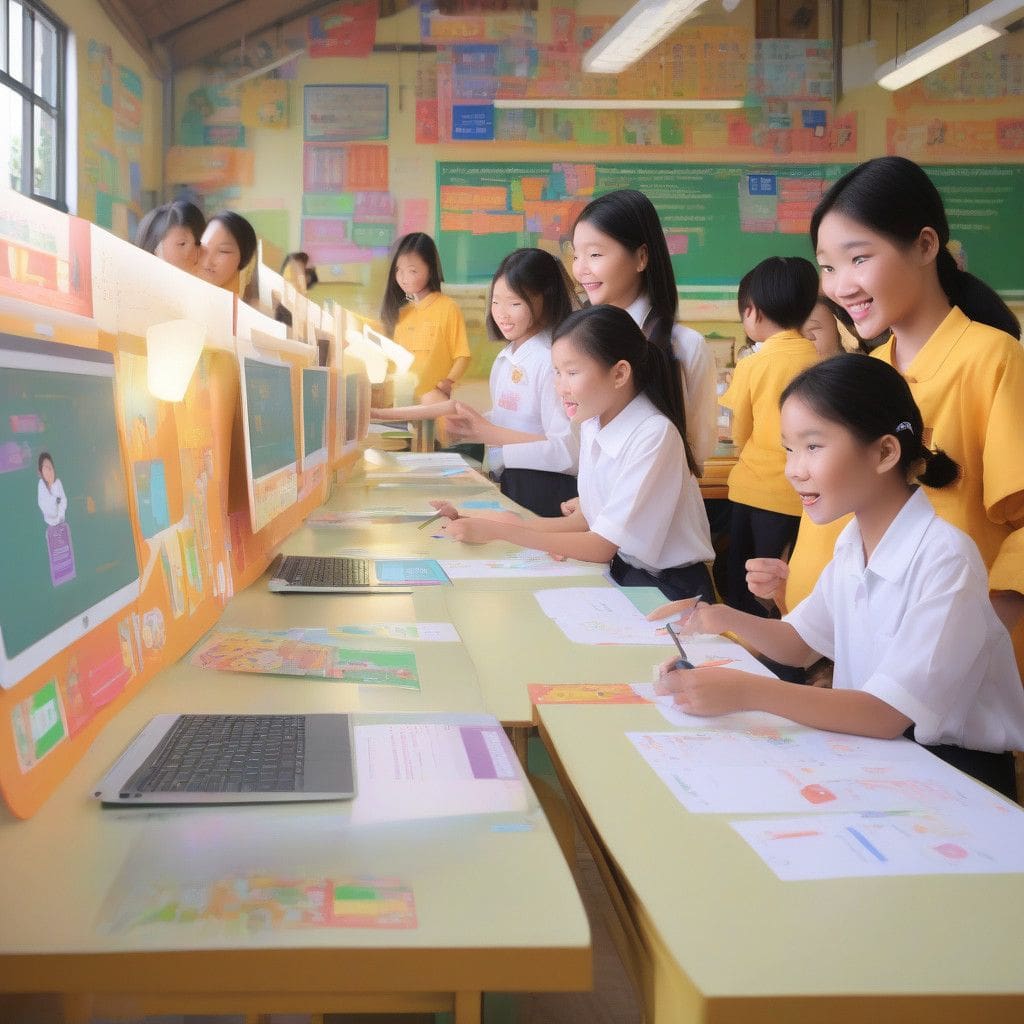In a significant initiative aimed at enhancing the quality of education in rural Vietnam, researchers from Coventry University have launched the GameAid project. This project is designed to assist teachers in regions where access to technology and educational resources is limited. Led by Dr. Petros Lameras, the initiative harnesses the power of generative artificial intelligence (AI) to help educators develop lesson plans and engage students more effectively.
GameAid introduces a game-based approach to education, allowing teachers to grasp the practical applications of AI. By creating tools and providing guidelines, the project empowers educators to seamlessly integrate AI into their curriculum. Dr. Lameras emphasizes that the collaboration with local educators is vital, as it ensures that the tools developed are directly applicable to the unique challenges faced in Vietnamese classrooms.
One of the critical features of the GameAid project is its focus on transforming the technological competencies of teachers. In the context of northern Vietnam, where educational resources can be sparse, the initiative aims to bridge the technology gap that exists between urban and rural areas. Dr. Nguyen Thi Thu Huyen from Hanoi University points out this potential, noting that GameAid could significantly diminish the educational divide exacerbated by geographical and socioeconomic factors.
The project’s methodology involves not only the introduction of AI tools but also the incorporation of gamification elements. This approach is intended to make learning more engaging for both educators and students. For instance, teachers can use AI to create interactive lesson materials, thereby fostering a participatory learning environment. As the initiative unfolds, there is hope that it will lead to improved educational outcomes, enriching the learning experiences of students in underserved areas.
Coventry’s researchers foresee GameAid as a pivotal stride towards equitable education. By providing rural teachers with access to cutting-edge technology and training, the project not only enhances their teaching practices but also inspires innovative approaches to classroom management. This initiative highlights the importance of inclusive education, ensuring that students from all backgrounds receive the support they need to thrive.
The potential impact of the GameAid project extends beyond immediate educational improvements. By equipping teachers with advanced tools, it fosters a culture of continuous learning and adaptation. This is essential in today’s rapidly changing digital landscape where students must be prepared for a future that demands technical proficiency. Enhancing the skills of educators ultimately contributes to a more knowledgeable society, which is essential for the economic and social development of Vietnam.
As the GameAid project takes shape, it exemplifies the transformative role that technology can play in education. By overcoming barriers to learning and equipping teachers with the necessary resources, Coventry University is making strides towards a future where quality education is accessible to all, regardless of location. This initiative serves as a model for similar projects that aim to address educational disparities worldwide.
Effective collaboration among educational institutions, governments, and technological entities is critical for the success of such projects. The insights gained from the GameAid initiative may inspire further research and development in the realm of AI in education. It stands as a testament to the commitment of Coventry University researchers to not only advance technology but also to apply it in ways that promote social equity.
Overall, the GameAid project is a meaningful step in addressing the gaps in educational access in rural Vietnam. It signals a shift towards more inclusive and resourceful teaching practices, laying the groundwork for a brighter future for students in underserved communities.












